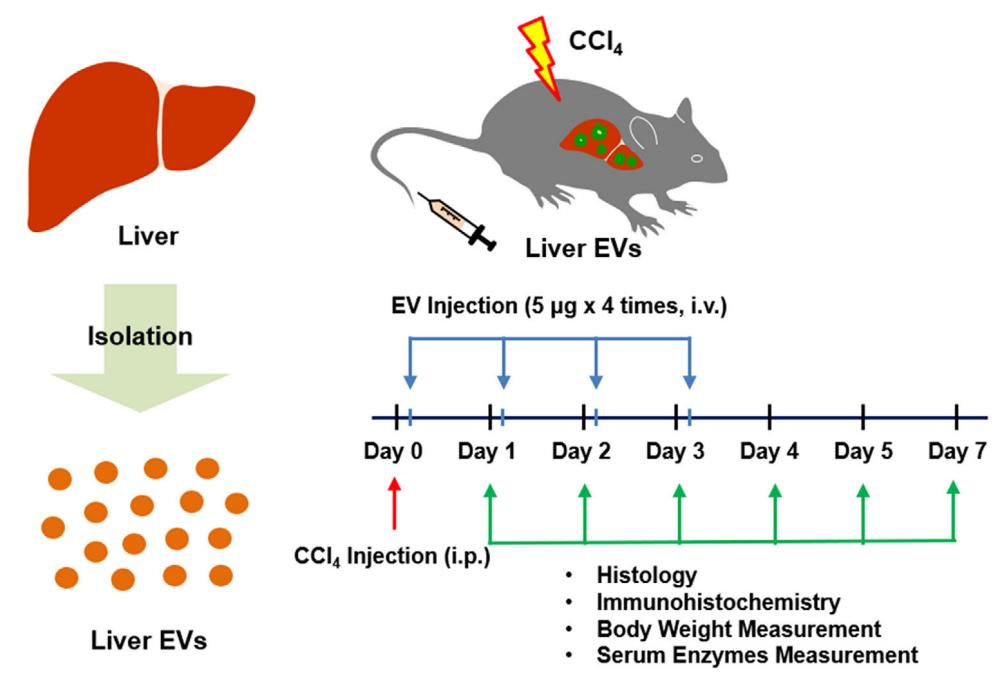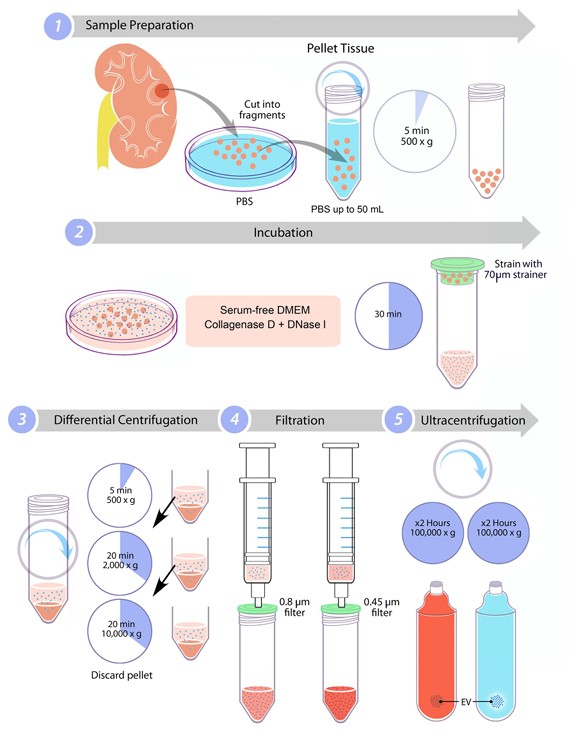Tissue Exosome related Therapeutic Research Service
Overview Services Features FAQs
Creative Biolabs is dedicated to digging deeper into the applied research thoughts of tissue exosomes and can provide services related to the therapeutic research of tissue exosomes.
Overview
Research hotspots in the field of exosomes have been focused on cellular supernatant sources and humoral sources, with some limitations for both. Yet, tissue exosomes have received increasing attention from researchers for their unique potential to provide a realistic and specific reflection of the local tissue microenvironmental exosomal conditions. In addition to investigating the characterization of contents, the development of diagnostic markers, and their biological functions with tissue exosomes, their therapeutic properties are also an attractive research direction. The therapeutic applications of tissue exosomes have been the subject of cutting-edge research in several areas, including but not limited to:
-
Tissue Exosomes in Combination with Therapeutic Agents: Researchers combined optimized outer membrane vesicles from Gram-negative bacteria with tumor tissue exosomes, enhancing tumor-specific adaptive immunity and synergizing anti-PD-1 therapy.
-
Tissue Exosomes for Injury Repair: Liver tissue-derived exosomes inhibited acute hepatotoxicity and promoted liver regeneration in a mouse model by blocking apoptosis and stimulating hepatocyte proliferation.
-
Tumor Tissue Exosomes as Pro-regenerative Therapeutic Agents: Exosomes from lipoma and adipose tissue facilitate tissue regeneration by promoting adipocyte recruitment, angiogenesis, and lipogenic differentiation in adipose tissue stem cells and grafts.
 Fig.1 Liver tissue exosomes accelerate recovery of hepatic necrosis.1, 3
Fig.1 Liver tissue exosomes accelerate recovery of hepatic necrosis.1, 3
Service We Offer
-
Initial Consultation: Our team will hold an initial consultation via email to understand your research objectives, requirements, and specific needs.
-
Project Planning: We will draft a detailed project plan outlining the scope, timelines, and deliverables based on the initial consultation. Then review and finalize the project plan with your feedback.
-
Sample Collection and Preparation: Receive tissue samples for exosome isolation and analysis, following established protocols to ensure sample integrity and quality.
-
Exosome Isolation: We utilize advanced techniques to isolate exosomes from the tissue samples, with ultracentrifugation, filtration, or commercial kits.
-
Analysis: We analyze the therapeutic effects of isolated exosomes through various cell and animal experiments, analyze data, and interpret results based on the latest research methods.
-
Data Interpretation and Reporting: Comprehensive reports including data interpretation and recommendations will be provided.
-
Ongoing Support: We offer continued support and consultation for further research needs or questions that arise.
 Fig.2 Workflow of kidney tissue EV isolation.2, 3
Fig.2 Workflow of kidney tissue EV isolation.2, 3
Features
-
Advanced Isolation Methods: Use state-of-the-art equipment to isolate exosomes with high purity and efficiency.
-
Comprehensive Research: Detailed analysis of exosome size, concentration, contents, and effects using state-of-the-art tools.
-
Expert Consultation: Throughout the study process, you can get advice and insights from a group of professionals.
-
High-Quality Data: Deliver accurate and reliable data supported by rigorous quality control measures.
Optimizing the isolation methods of tissue exosomes to obtain purer samples and establishing standardized protocols for their characterization and potency analysis is essential to confirm the therapeutic activity and mechanism. In addition, tissue exosomes have the potential to be modified to improve their targeting function and therapeutic efficacy. Creative Biolabs has established a stable and mature platform for engineering exosomes and can provide services for therapeutic studies of tissue exosomes in various animal models. Please feel free to contact us.
FAQs
Q: What types of tissue samples can be used for exosome isolation?
A: We accept a variety of animal tissue samples, including but not limited to, tumor tissues, blood samples, and biopsies. Please consult with us to confirm sample suitability.
Q: How should I prepare my samples for submission?
A: Samples should be collected according to standard protocols to maintain their viability. Detailed instructions will be provided upon project initiation.
Q: Can you provide customized analyses?
A: Yes, we offer customized analyses based on your specific research needs. Please discuss your requirements during the project planning phase.
Q: How will the data be reported?
A: Data will be reported in a comprehensive format including detailed charts, graphs, and interpretive analysis. We also provide a summary report.
References
-
Lee, Jaemin, et al. "Extracellular vesicles from in vivo liver tissue accelerate recovery of liver necrosis induced by carbon tetrachloride." Journal of Extracellular Vesicles 10.10 (2021): e12133.
-
Zieren, Richard C., et al. "Extracellular vesicle isolation from human renal cancer tissue." Medical Oncology 37 (2020): 1-11.
-
Under Open Access license CC BY 4.0. The image was modified by revising the title.
For Research Use Only. Cannot be used by patients.
Related Services:

 Fig.1 Liver tissue exosomes accelerate recovery of hepatic necrosis.1, 3
Fig.1 Liver tissue exosomes accelerate recovery of hepatic necrosis.1, 3
 Fig.2 Workflow of kidney tissue EV isolation.2, 3
Fig.2 Workflow of kidney tissue EV isolation.2, 3









